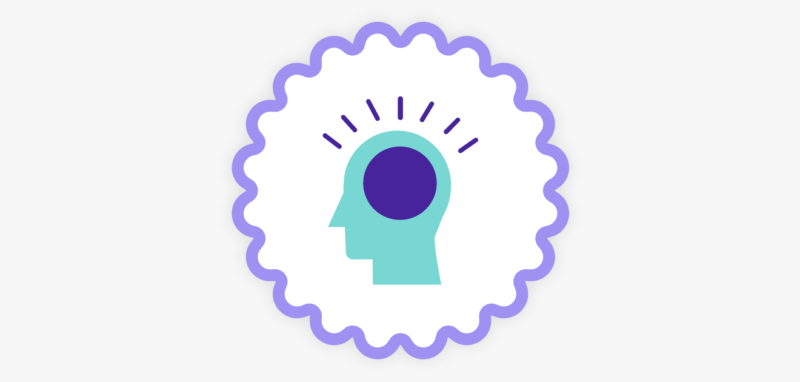Tech Skill
Hadoop Skills
All about Hadoop
Hadoop is an open-source framework designed for distributed storage and processing of large datasets across clusters of computers using simple programming models. It’s a fundamental component of big data analytics, enabling organizations to efficiently store and process vast amounts of structured and unstructured data. Hadoop consists of two main components: the Hadoop Distributed File System (HDFS) for storage and the MapReduce programming model for processing.
Related: Check out the entire Software Engineer Trends series, covering tech skills, specializations, the impact of AI on the software development industry, salaries, locations, and more.
What to use Hadoop for
Here are some key applications of Hadoop:
- Big Data Processing: Hadoop is used for processing and analyzing large volumes of structured, semi-structured, and unstructured data, including log files, sensor data, social media data, web server logs, and machine-generated data, in a distributed and parallel manner across clusters of commodity hardware.
- Data Warehousing: Hadoop is used for building data warehouses and data lakes, enabling organizations to store and analyze vast amounts of historical and real-time data from diverse sources, and to derive insights and make data-driven decisions for business intelligence, reporting, and analytics purposes.
- Data Transformation: Hadoop is used for data transformation and ETL (extract, transform, load) processes, enabling organizations to ingest data from multiple sources, clean and preprocess data, transform data into a structured format, and load data into data warehouses or analytical databases for further analysis.
- Large-Scale Analytics: Hadoop is used for large-scale analytics tasks, including exploratory data analysis, predictive modeling, machine learning, and data mining, enabling organizations to discover patterns, trends, and insights in their data, and to build predictive models and recommendation systems for various business applications.
- Log and Event Processing: Hadoop is used for log and event processing tasks, including log analysis, event correlation, anomaly detection, and real-time monitoring, enabling organizations to monitor and analyze system logs, network logs, and application logs for security, compliance, and operational insights.
Companies of all sizes use Hired to find engineers with Hadoop skills
What is a Hadoop Developer?A Hadoop developer is a big data engineer who specializes in building and deploying big data solutions using the Hadoop ecosystem and related technologies. They’re proficient in using the Hadoop ecosystem tools and libraries. This includes Hadoop Distributed File System (HDFS), MapReduce, Apache Hive, Apache Pig, Apache Spark, Apache HBase, Apache Sqoop, Apache Flume, and Apache Kafka.
Here’s what it means to be a Hadoop developer:
- Understanding of Distributed Computing: A Hadoop developer has a solid understanding of distributed computing principles, including parallel processing, data partitioning, data shuffling, fault tolerance, and scalability, enabling them to design and implement distributed and scalable solutions for processing and analyzing large datasets.
- Programming Skills: A Hadoop developer is proficient in programming languages such as Java, Python, Scala, or SQL, and is familiar with scripting languages such as Bash, for developing and debugging Hadoop applications, writing MapReduce jobs, and interacting with Hadoop ecosystem components via APIs and command-line tools.
- Experience with Data Processing: A Hadoop developer has experience with data processing tasks, including data ingestion, data transformation, data cleansing, data aggregation, and data analysis, using Hadoop ecosystem tools and frameworks, and is familiar with data formats such as Avro, Parquet, JSON, and XML.
- Continuous Learner: A Hadoop developer is a lifelong learner who stays updated with the latest advancements in big data technologies, Hadoop ecosystem tools and libraries, and best practices in big data engineering, and actively seeks opportunities for learning and professional development to enhance their skills and stay competitive in the field.
- Programming and Scripting: Proficiency in programming languages such as Java, Python, Scala, or SQL, and familiarity with scripting languages such as Bash, for developing and debugging Hadoop applications, writing MapReduce jobs, and interacting with Hadoop ecosystem components via APIs and command-line tools, enabling developers to implement custom logic, algorithms, and data processing pipelines in Hadoop ecosystem environments.
- Distributed Computing: Understanding of distributed computing principles and techniques, including parallel processing, data partitioning, data shuffling, fault tolerance, and scalability, and familiarity with distributed computing frameworks such as MapReduce, Apache Spark, and Apache Flink, enabling developers to design and implement distributed and scalable solutions for processing and analyzing large datasets efficiently and reliably across clusters of commodity hardware.
- Data Processing and Analysis: Experience with data processing tasks, including data ingestion, data transformation, data cleansing, data aggregation, and data analysis, using Hadoop ecosystem tools and frameworks, and familiarity with data formats such as Avro, Parquet, JSON, and XML, enabling developers to manipulate and analyze large volumes of structured, semi-structured, and unstructured data, and to derive insights and make data-driven decisions for various business applications.
- DevOps and Automation: Familiarity with DevOps practices and tools for automation, continuous integration (CI), continuous delivery (CD), infrastructure as code (IaC), and monitoring and logging, including Docker, Kubernetes, Jenkins, Ansible, and Prometheus, enabling developers to streamline development workflows, improve deployment processes, and enhance operational efficiency and collaboration within big data engineering teams.
Hadoop resources
Check out our resources to continue sharpening your Hadoop skills.
Hired profiles help developers showcase their top tech skills
After passing Hired skills assessments, candidates may showcase their skills to employers. They can opt to present an ‘Assessments’ badge on their profile. Candidates may take various assessments including Programming Skills, Full Stack, Backend, Frontend, iOS, Android, Debugging, DevOps Generalist, and DevOps AWS.
Find Hadoop jobs on Hired.
Hiring Hadoop developers can bring numerous benefits to your organization:
- Big Data Expertise: Hadoop developers bring expertise in big data technologies, Hadoop ecosystem tools, and distributed computing principles, enabling you to build and deploy scalable and reliable big data solutions for processing, analyzing, and deriving insights from large volumes of data.
- Scalability and Performance: Hadoop developers help you harness the scalability and performance of the Hadoop ecosystem, enabling you to process and analyze large datasets efficiently and cost-effectively across clusters of commodity hardware, and to scale your infrastructure and applications dynamically to meet changing demand and workload requirements.
- Innovation and Insights: Hadoop developers empower you to innovate and gain valuable insights from your data, thanks to their expertise in data processing, data analysis, and machine learning techniques, enabling you to discover patterns, trends, and correlations in your data, and to build predictive models and recommendation systems that drive business growth, improve operational efficiency, and enhance customer experiences.
- Cost Savings and ROI: Hadoop developers help you realize cost savings and maximize return on investment (ROI) for your big data projects, thanks to their ability to leverage open-source technologies, commodity hardware, and cloud computing platforms, and to optimize resource utilization, performance, and efficiency in your infrastructure and applications, reducing operational costs and increasing the value proposition of your big data initiatives.
Looking for candidates skilled in Hadoop? Technical assessments are a multi-pronged solution. They allow you to streamline the hiring process and reduce bias with tech skill-focused benchmarks.
Hired Assessments offers a library of hundreds of questions and customizable coding challenge campaigns tailored to technical preferences. Centralize and standardize your evaluation process as you surface top talent with specific, hard-to-find skills.
See how Mastercard and Axon used Hired Assessments to vet top candidates.
Resources you’ll love

4 Offer Stage Strategies to Win Top Candidates
Getting a candidate to the offer stage You’ve run a seamless process. Your hiring manager and...

How to Manage Inbound Applications & Rethink Talent Sourcing Analytics: Tips for Recruiters
Experiencing an overwhelming volume of inbound applications? In a new episode of Talk Talent to...

AI Leads to More Human-Centric Recruitment & Hiring (What!?)
Leading the way to streamlined & people-focused processes AI is more than just an ongoing...



